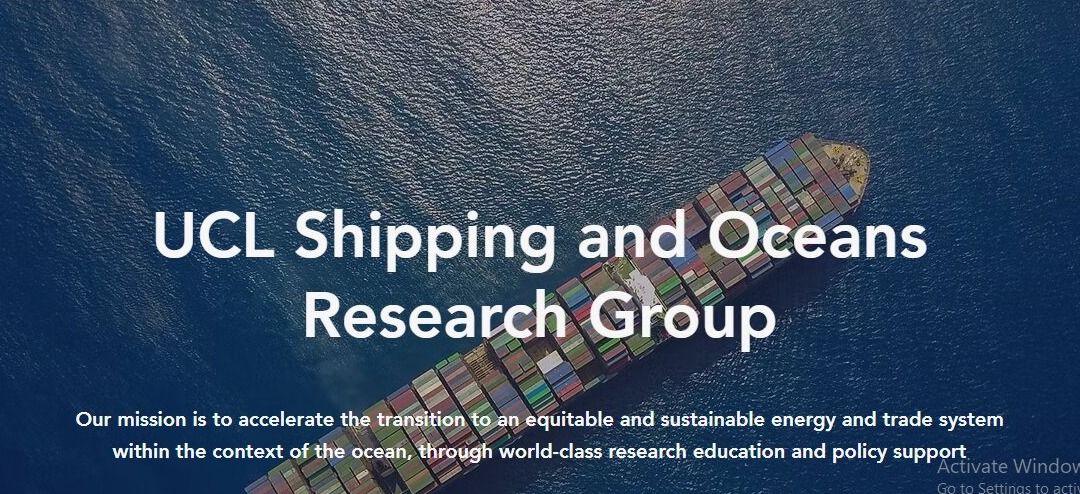
Targeted distribution of revenues from shipping emissions pricing could help reduce global inequality
LONDON: A new study from UCL’s Ocean and Shipping Group reveals that the International Maritime Organization (IMO) Net Zero Framework could help reduce global inequalities, provided that the revenue generated is strategically distributed to support vulnerable nations. The research, published in One Earth journal, recommends an equity-focused revenue distribution design that allows both in and out of sector spending and prioritises the needs of vulnerable countries.
Without such targeted support, early movers and beneficiaries in maritime decarbonisation are predominantly wealthier countries, while many developing nations risk both exclusion from the green transition and disproportionate and higher impacts from increased transport costs.
The IMO is set to adopt the Net Zero Framework in October 2025, which includes emission pricing mechanisms expected to generate at least $11–$12 billion per year in 2030. Most of the attention in the Framework’s development to date has been on the potential impacts on trade–ignoring the distribution of benefits and opportunities that will also be created.
The study identifies three categories where emission pricing revenue should be allocated into:
- Supporting early movers to accelerate the shipping’s clean energy transition.
- Enabling technological inclusivity for countries with potential for investing in the transition to low-carbon shipping but have limited readiness.
- Addressing the impacts of an increase in transport cost and broader climate vulnerability through in- and out-of-sector investments in adaptation and development.
The study confirms that whilst overall impacts on trade are low, low-income countries, Least Developed Countries (LDCs), and Small Island Developing States (SIDS) would be disproportionately affected, with developed economies such as the US, UK and EU, facing the lowest impacts on trade. This is due to low-income countries already facing higher transport costs relative to the value of their goods, their remoteness from global markets, and relative port inefficiency.
The research reveals a stark divide in the shipping sector’s green transition. Wealthier countries such as Singapore, Norway, Denmark, US and South Korea, are already leading investments in low-carbon shipping technologies (e.g. as evidenced in Global Maritime Forum’s analysis of pilot/demonstration project activity), while nations with significant technical potential – including Mauritania, Namibia, and Mozambique – remain excluded due to lower transition readiness linked to governance, financial access, and infrastructure constraints.
The results suggest that at least part of the revenue should be distributed to offset the trade costs in vulnerable countries, and to remove the barriers to investments in countries with a strong techno-economic potential, to ensure that the transition to low-carbon shipping is inclusive.
Lead author Dr Marie Fricaudet, Senior Research Fellow at the UCL Energy Institute’s Shipping and Oceans Research Group, explained: “We found that many countries vulnerable to climate change and transport cost are also not yet participating in the transition to low-carbon shipping. This means that any revenue distributed without a focus on equity (e.g. to subsidize fuels and infrastructure without specifically targeting vulnerable countries) would be unlikely to be taken up in them.“
Utilising comprehensive datasets covering early investments in green shipping, countries’ technical potential for alternative fuels and maritime infrastructure, economic vulnerability and impact assessments, and climate adaptation readiness indicators, the study maps countries’ technological potential against their vulnerability to both climate change and increased shipping costs.
Dr Domagoj Baresic, Senior Research Fellow at the UCL Energy Institute’s Shipping and Oceans Research Group, said: “Strategic investments are essential for removing obstacles to innovation and technological progress. This study highlights that multiple developing and least developed countries could benefit from the allocation of revenues under the IMO decarbonisation framework, supporting a fairer and more equitable transition.”
The research comes as the IMO prepares to formally ‘adopt’ the Framework agreed in principle in April and then move to finalizing the guidelines that will implement the Framework. The analysis follows a year of discussion about how to define “just and equitable transition” principles and where revenue should be directed.
Link to full paper: https://www.cell.com/one-earth/fulltext/S2590-3322(25)00185-X One Earth, DOI: S2590-3322(25)00185-X
About UCL Energy Institute
The UCL Energy Institute hosts world-leading research groups focused on accelerating the transition to an equitable and sustainable energy system. The Shipping and Oceans Research Group combines advanced data analytics, cutting-edge modelling, and rigorous research methods to provide crucial insights for policy and industry decision-makers. The group’s work spans three core areas: analysing big data to understand drivers of emissions and environmental impacts, developing frameworks for zero-emissions transitions, and examining policy structures that enable decarbonisation. For more information visit www.shippingandoceans.com

